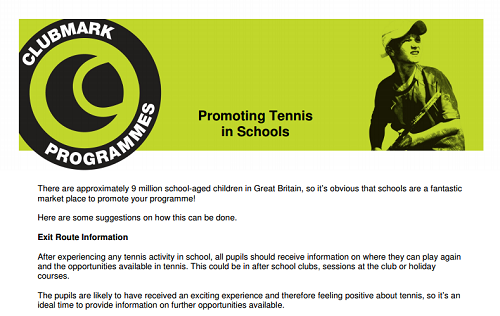5 Of The Best Tennis-Themed Resources For Wimbledon 2017
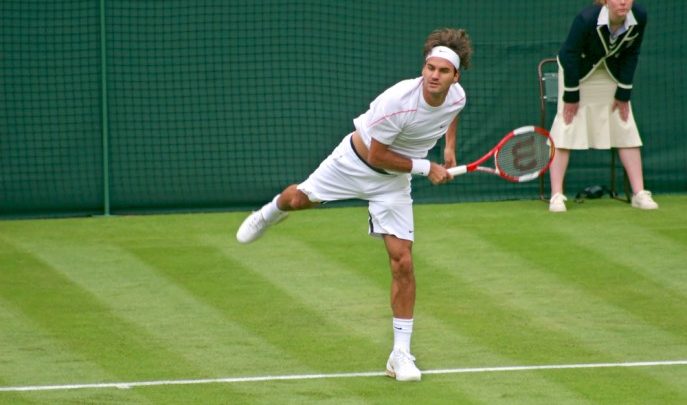
Get ready to make a racket about serves, volleys, backhands and forehands this 3-16 July when grown-up ping pong comes back to London's SW

- by Lloyd Burgess
- Former editor of Teachwire

Tennis was invented and inspired by the early computer game, Pong, which came out in 1972.
Hang on, Wikipedia says that the sport existed in some form back in the Middle Ages and developed over centuries. But any teacher will tell you that site is an unreliable source.
Hang on, the official Wimbledon site backs that up. It says here that the first Championships were in the 1870s. Must be a misprint. #FakeNews.
Either way, the latest games will definitely be taking place this July, so gear up your students with some great activities both active and otherwise, that tie in to Wimbledon 2017.

1. Game. Set. Match
If you’ve ever decided to dust off the old racquet and attempt to book a court while Wimbledon is on you’ll know how many other people had exactly the same idea, only quicker.
So while you wait for the first available booking slot in late October you might as well let students get in on the peak excitement levels that surround tennis each summer.
If the answer to any of these questions is ‘no’ (or ‘Great, I’ve now got ‘Summer Holiday’ stuck in my head. Thanks Teachwire’) then you can use the handy Wimbledon timeline. Check it out on the official Wimbledon site.
Bonus. 6 More great resources
Just in case this lot wasn’t enough, why not check out the resource roundup we did for last year’s Championships? You’ll find another six right here.
This ambitious programme aims to radically change the way tennis is delivered in secondary schools across Great Britain through a bottom-up, young-people-centred approach, providing a flexible national framework for you to design and deliver a tennis curriculum that best meets the needs of your pupils and wider school community. So, if you’re serious about promoting tennis in your school, check out this in-depth PDF here.
5. One for the history books
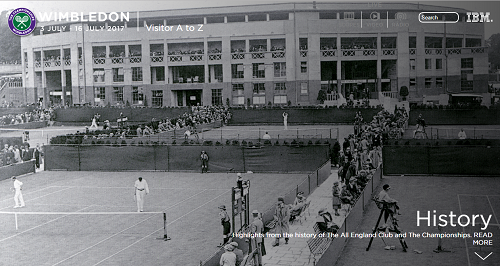 We’ve all seen John McEnroe’s famous gentlemanly debate over the solemnity of the umpire’s decision-making abilities, we can all do an impression of the various noises that would come out of Monica Seles during a match, we remember Tim Henman getting soundly beaten at the quarter final stage for about 27 years in a row and unfortunately we can’t seem to erase the memory of Sir Cliff Richard singing to the crowd during a long rain break.
We’ve all seen John McEnroe’s famous gentlemanly debate over the solemnity of the umpire’s decision-making abilities, we can all do an impression of the various noises that would come out of Monica Seles during a match, we remember Tim Henman getting soundly beaten at the quarter final stage for about 27 years in a row and unfortunately we can’t seem to erase the memory of Sir Cliff Richard singing to the crowd during a long rain break.
But can you tell us (without Google) when the first Wimbledon was? And how many years later the women’s championship began? What year 81 of the top players boycotted the tournament? Or what year this German Wunderkind became the youngest ever champion?

If the answer to any of these questions is ‘no’ (or ‘Great, I’ve now got ‘Summer Holiday’ stuck in my head. Thanks Teachwire’) then you can use the handy Wimbledon timeline. Check it out on the official Wimbledon site.
Bonus. 6 More great resources
Just in case this lot wasn’t enough, why not check out the resource roundup we did for last year’s Championships? You’ll find another six right here.
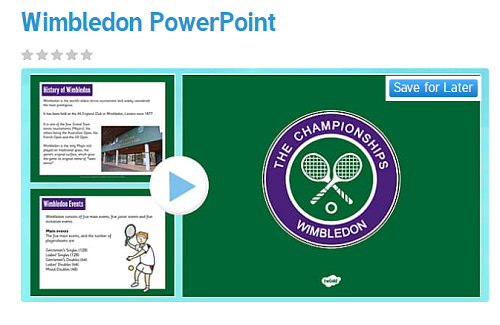 Whether you’re after a Wimbledon PowerPoint, concept map activities, a KS1 differentiated comprehension activity or a whole a whole KS2 resource pack look no further.
You can find all these resources and many, many more here.
Whether you’re after a Wimbledon PowerPoint, concept map activities, a KS1 differentiated comprehension activity or a whole a whole KS2 resource pack look no further.
You can find all these resources and many, many more here.
4. ‘In’ or ‘out’
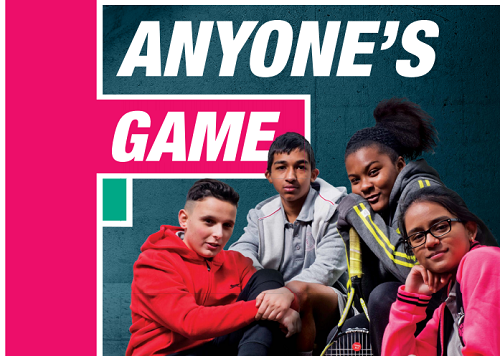 One for secondary schools now, this information pack has been designed to provide schools with information about the School of Tennis programme and give you everything you need to deliver each strand of the programme effectively.
One for secondary schools now, this information pack has been designed to provide schools with information about the School of Tennis programme and give you everything you need to deliver each strand of the programme effectively.
This ambitious programme aims to radically change the way tennis is delivered in secondary schools across Great Britain through a bottom-up, young-people-centred approach, providing a flexible national framework for you to design and deliver a tennis curriculum that best meets the needs of your pupils and wider school community. So, if you’re serious about promoting tennis in your school, check out this in-depth PDF here.
5. One for the history books
 We’ve all seen John McEnroe’s famous gentlemanly debate over the solemnity of the umpire’s decision-making abilities, we can all do an impression of the various noises that would come out of Monica Seles during a match, we remember Tim Henman getting soundly beaten at the quarter final stage for about 27 years in a row and unfortunately we can’t seem to erase the memory of Sir Cliff Richard singing to the crowd during a long rain break.
We’ve all seen John McEnroe’s famous gentlemanly debate over the solemnity of the umpire’s decision-making abilities, we can all do an impression of the various noises that would come out of Monica Seles during a match, we remember Tim Henman getting soundly beaten at the quarter final stage for about 27 years in a row and unfortunately we can’t seem to erase the memory of Sir Cliff Richard singing to the crowd during a long rain break.
But can you tell us (without Google) when the first Wimbledon was? And how many years later the women’s championship began? What year 81 of the top players boycotted the tournament? Or what year this German Wunderkind became the youngest ever champion?

If the answer to any of these questions is ‘no’ (or ‘Great, I’ve now got ‘Summer Holiday’ stuck in my head. Thanks Teachwire’) then you can use the handy Wimbledon timeline. Check it out on the official Wimbledon site.
Bonus. 6 More great resources
Just in case this lot wasn’t enough, why not check out the resource roundup we did for last year’s Championships? You’ll find another six right here.
Trending
There are numeracy and literacy activities as well as ones for history, geography, science, music and more. You can find all of this here.
3. Grand Slam
 Whether you’re after a Wimbledon PowerPoint, concept map activities, a KS1 differentiated comprehension activity or a whole a whole KS2 resource pack look no further.
You can find all these resources and many, many more here.
Whether you’re after a Wimbledon PowerPoint, concept map activities, a KS1 differentiated comprehension activity or a whole a whole KS2 resource pack look no further.
You can find all these resources and many, many more here.
4. ‘In’ or ‘out’
 One for secondary schools now, this information pack has been designed to provide schools with information about the School of Tennis programme and give you everything you need to deliver each strand of the programme effectively.
One for secondary schools now, this information pack has been designed to provide schools with information about the School of Tennis programme and give you everything you need to deliver each strand of the programme effectively.
This ambitious programme aims to radically change the way tennis is delivered in secondary schools across Great Britain through a bottom-up, young-people-centred approach, providing a flexible national framework for you to design and deliver a tennis curriculum that best meets the needs of your pupils and wider school community. So, if you’re serious about promoting tennis in your school, check out this in-depth PDF here.
5. One for the history books
 We’ve all seen John McEnroe’s famous gentlemanly debate over the solemnity of the umpire’s decision-making abilities, we can all do an impression of the various noises that would come out of Monica Seles during a match, we remember Tim Henman getting soundly beaten at the quarter final stage for about 27 years in a row and unfortunately we can’t seem to erase the memory of Sir Cliff Richard singing to the crowd during a long rain break.
We’ve all seen John McEnroe’s famous gentlemanly debate over the solemnity of the umpire’s decision-making abilities, we can all do an impression of the various noises that would come out of Monica Seles during a match, we remember Tim Henman getting soundly beaten at the quarter final stage for about 27 years in a row and unfortunately we can’t seem to erase the memory of Sir Cliff Richard singing to the crowd during a long rain break.
But can you tell us (without Google) when the first Wimbledon was? And how many years later the women’s championship began? What year 81 of the top players boycotted the tournament? Or what year this German Wunderkind became the youngest ever champion?

If the answer to any of these questions is ‘no’ (or ‘Great, I’ve now got ‘Summer Holiday’ stuck in my head. Thanks Teachwire’) then you can use the handy Wimbledon timeline. Check it out on the official Wimbledon site.
Bonus. 6 More great resources
Just in case this lot wasn’t enough, why not check out the resource roundup we did for last year’s Championships? You’ll find another six right here.

2. Serving an ace
For younger learners who may not be as familiar with the game, the Tennis Foundation has an excellent PDF jam-packed with a week’s worth of tennis-related activities aimed at KS1, but that are easily adaptable for KS2.
They include: • An easy-to-run daily skills challenge • Varied register-time morning work on a tennis theme • A design and technology group challenge • Simple clay artwork
There are numeracy and literacy activities as well as ones for history, geography, science, music and more. You can find all of this here.
3. Grand Slam
 Whether you’re after a Wimbledon PowerPoint, concept map activities, a KS1 differentiated comprehension activity or a whole a whole KS2 resource pack look no further.
You can find all these resources and many, many more here.
Whether you’re after a Wimbledon PowerPoint, concept map activities, a KS1 differentiated comprehension activity or a whole a whole KS2 resource pack look no further.
You can find all these resources and many, many more here.
4. ‘In’ or ‘out’
 One for secondary schools now, this information pack has been designed to provide schools with information about the School of Tennis programme and give you everything you need to deliver each strand of the programme effectively.
One for secondary schools now, this information pack has been designed to provide schools with information about the School of Tennis programme and give you everything you need to deliver each strand of the programme effectively.
This ambitious programme aims to radically change the way tennis is delivered in secondary schools across Great Britain through a bottom-up, young-people-centred approach, providing a flexible national framework for you to design and deliver a tennis curriculum that best meets the needs of your pupils and wider school community. So, if you’re serious about promoting tennis in your school, check out this in-depth PDF here.
5. One for the history books
 We’ve all seen John McEnroe’s famous gentlemanly debate over the solemnity of the umpire’s decision-making abilities, we can all do an impression of the various noises that would come out of Monica Seles during a match, we remember Tim Henman getting soundly beaten at the quarter final stage for about 27 years in a row and unfortunately we can’t seem to erase the memory of Sir Cliff Richard singing to the crowd during a long rain break.
We’ve all seen John McEnroe’s famous gentlemanly debate over the solemnity of the umpire’s decision-making abilities, we can all do an impression of the various noises that would come out of Monica Seles during a match, we remember Tim Henman getting soundly beaten at the quarter final stage for about 27 years in a row and unfortunately we can’t seem to erase the memory of Sir Cliff Richard singing to the crowd during a long rain break.
But can you tell us (without Google) when the first Wimbledon was? And how many years later the women’s championship began? What year 81 of the top players boycotted the tournament? Or what year this German Wunderkind became the youngest ever champion?

If the answer to any of these questions is ‘no’ (or ‘Great, I’ve now got ‘Summer Holiday’ stuck in my head. Thanks Teachwire’) then you can use the handy Wimbledon timeline. Check it out on the official Wimbledon site.
Bonus. 6 More great resources
Just in case this lot wasn’t enough, why not check out the resource roundup we did for last year’s Championships? You’ll find another six right here.




